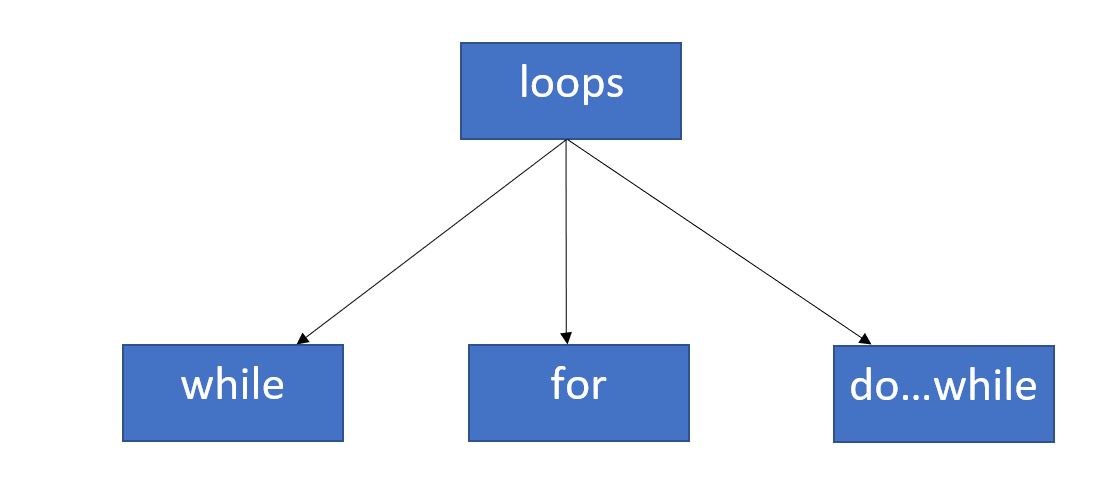
Open-Source Internship opportunity by OpenGenus for programmers. Apply now.
Reading time: 20 minutes | Coding time: 2 minutes
Loop is a programming concept which is natively supported by nearly all programming languages. Loops are used to repeat a particular coding task where each repetition follows a particular pattern which can be incorporated in a code. Example of such a task is printing integers from 1 to 10. The repetition is that we are printing integers and the pattern is that we start from 1 and increment by 1 each step. In this article, we will take a look at loops in C++.
The concept of loops comes into picture when we need to implement/print a particular block/statement more than one time till a particluar condition is specified. We have different types of loops :
Entry Controlled loop : Where the entry of the loop is controlled that is we have a condition at the starting of the loop. Example : while loop
Exit Controlled loop : In this type of loop the exit from the loop is controlled that is we have a condition at the end of the loop. Example : do..while loop

In this particular section we are going to discuss for loop.
Syntax :
for (initializationStatement; testExpression; updateStatement)
{
// codes
}
Where :
initializationStatement is the statement where we to initialize the loop counter to some value.
Example : int i=0;
testExpression in this expression we have to test the condition. If the condition is to true then we will execute the body of loop otherwise we will exit from the for loop.
Example : i<=10;
updateStatement after executing loop body this statement is encountered and is incremented/decremented depending on the statement.
Example : i++
Order of the excution of for loop
1)First we intialize the loop counter, In C++ it can be declared as well as intialized in the intializationStatement.
2)Then the condition is checked i.e testExpression is evaluated.
3)After this we enter the loop and print/execute the statement(s)/block.
4)Then the value of the loop counter in incremented/decremented depending on the updateStatement.
5)Now we will repeat Step 2-4 till the testExpression condition is violated.

Example
In this example, we will write a program to print number from 1 to 10.
Answer :
#include<iostream>
using namespace std;
int main()
{
int i;
for(i=0;i<10;i++)
{
cout<<i+1<<"\n";
}
return 1;
}
Difference between for and while loop
- Declaration:
for(initializationStatement; testExpression; updateStatement)
{
// code
}
While(testExpression)
{
//code
}
- Condition:
If condition is not mentioned then the loop will iterate infinite times in for loop. If condition is not mentioned then it provides compilation error in while loop. - Iteration Statement:
The iteration statement is written on the top hence executes only after all statements in for loop are executed.The statement can be mentioned anywhere in the while loop. - Use:
for loop isused when we already know the number of iterations but while loop is used when number of iterations are not exactly known.
Questions
See this C++ code:
#include<iostream>
using namespace std;
int main()
{
int i=0,x=0;
for(i=1;i<10;i*=2)
{
x++;
cout<<x;
}
cout<<x;
return 0;
}
